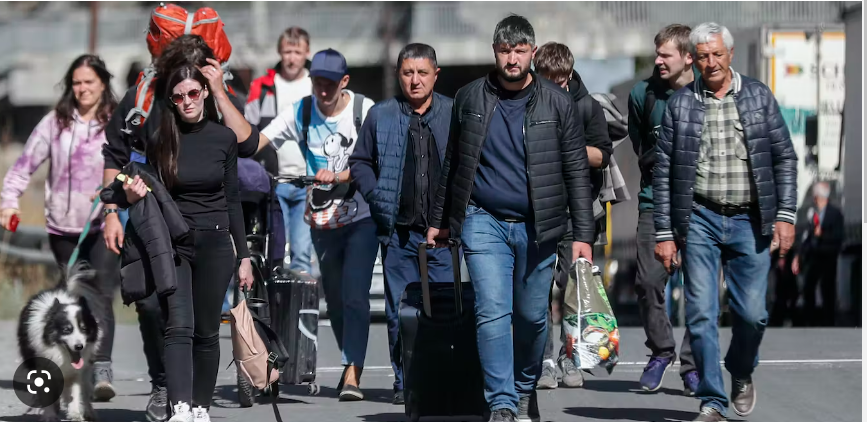
As usual, the Discussion Group had a meeting on the last Friday of the month, 25th November, which was the final discussion for this year.
There were 12 members of the group discussing the subject today. The member of the Group who proposed the topic, according to the established practice, led the discussion. He started by giving an indication of the different sources of information he used for his research – starting with Reuters, Carnegie Europe, Universal Declaration of Human Rights, The 1951 UN Refugee Convention etc and finishing with Frontex – European Border and Cost Guard Agency and the Mixed Migration Center for the statistics.

According to Frontex data, more than 1.36 million Russians have crossed the land border to the EU since the beginning of the Russian invasion in February 2022. Most crossed the border from Russia to Finland.
Estimates of Russians who have fled their country since Putin ordered military mobilisation on the 21st of September are from 300,000 upwards.
Despite the previously mentioned International Laws, several EU countries have now suspended granting visas to Russian citizens, further complicating their exit from Russia. Some countries have still allowed Russians to have temporary stays without a visa.
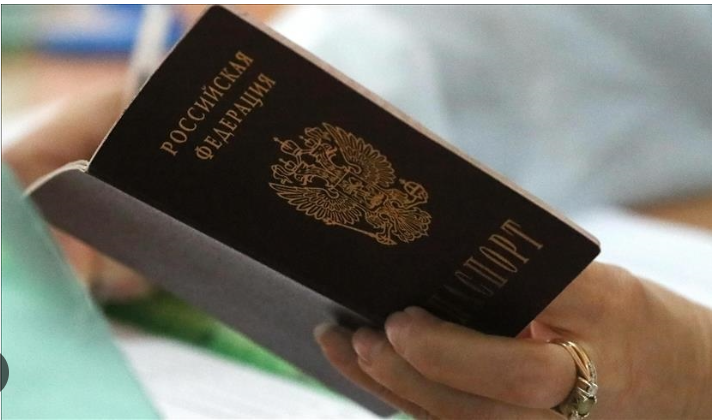
Urmas Reinsalu (Estonian foreign minister) (Reuters, September): “A refusal to fulfil one’s civic duty in Russia or a desire to refuse does not constitute sufficient grounds for being granted asylum in another country”.
Sanna Marin (Finnish Prime Minister) said that she did not think it was right for Russian citizens to be allowed to go ‘sightseeing’ in the EU while the Russian military ‘kills people in Ukraine’.
Olaf Scholz (German Chancellor) said that EU decisions should not ‘make it more complicated for these people to leave Russia and look for freedom’.
Members of the discussion group expressed many varying views – ranging from total refusal to accept Russian refugees being allowed to enter EU countries to acceptance of anyone, irrespective of colour, race or religion if that person is fleeing a country in war and/or there is a threat to that person’s life.
The moderator of the topic reminded everyone about the International Laws for migrants, refugees and asylum seekers, which explicitly state their rights, including specific protections. If countries, which signed those international laws and conventions, choose to ignore the requirements of these laws then what are they proposing to use to make their decisions on dealing with migrants, refugees and asylum seekers -ideology, religion, economics? It looked to our group that in real-life situations some countries choose to follow or ignore International Laws depending on whether or not that law suits them at the time.
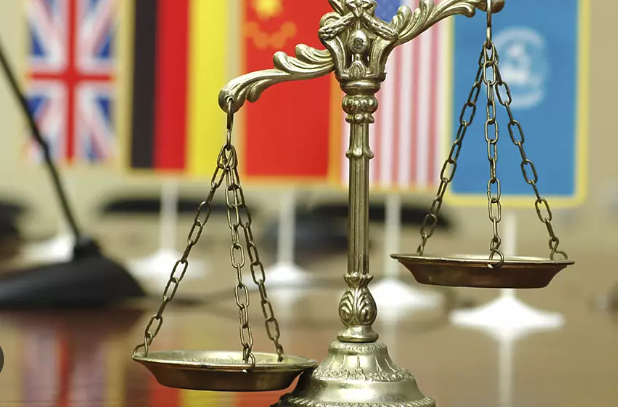
The discussion continued on the subject of International laws and how they are implemented and upheld.
Some views were that International laws were prepared a long time ago and that today’s new situations require revisions, updates and sometimes complex changes to those laws.
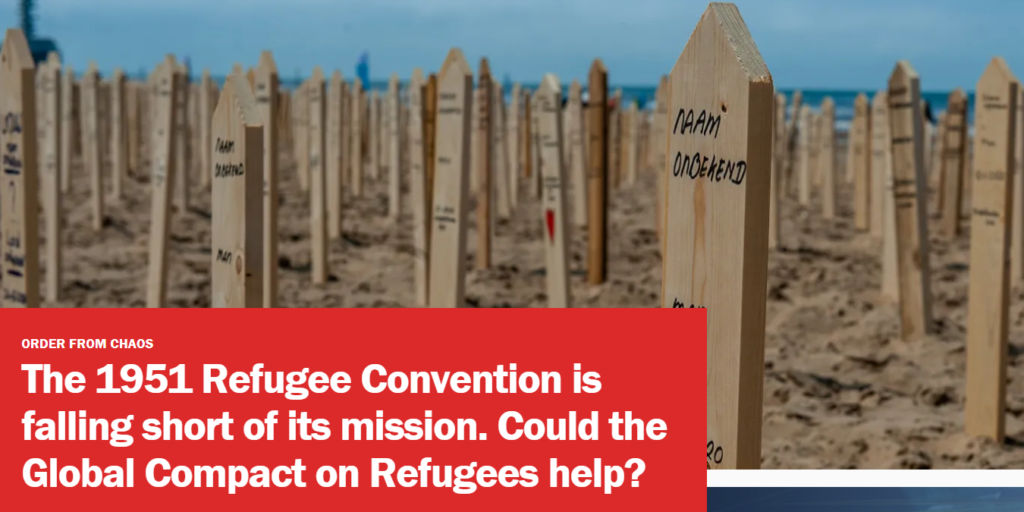
‘The Global Compact’ represents the political will and ambition of the international community as a whole for strengthened cooperation and solidarity with refugees and affected host countries.
A question was raised about the 2014 revolt in Ukraine that forced the legally elected president to leave the country. Was that not against International law?
Another question raised concerned Russia’s illegal war against Ukraine. When is a war of any description considered legal?
According to the UN sovereign / international states have the inherent right to defend their interests by using force when they are under an armed attack. i.e. act in self-defence. That would be considered a legal war. Sometimes a play of words and definitions of war – like military intervention/operation is used to pretend the legality.
If we look back at history, it is difficult to see the difference between wars and military intervention, because in both cases one or a few states/alliances/ militarily attack another state (Iraq, Libya, Syria, Afghanistan, Ukraine …)
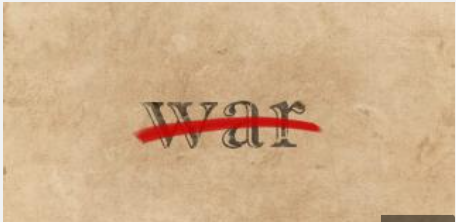
During the discussion, we didn’t find a legal and justified answer we could all agree on regarding what to do with Russian refugees, but as the Moderator mentioned, leaders of different governments are often facing similar difficult situations when they cannot agree on what is the right decision.
